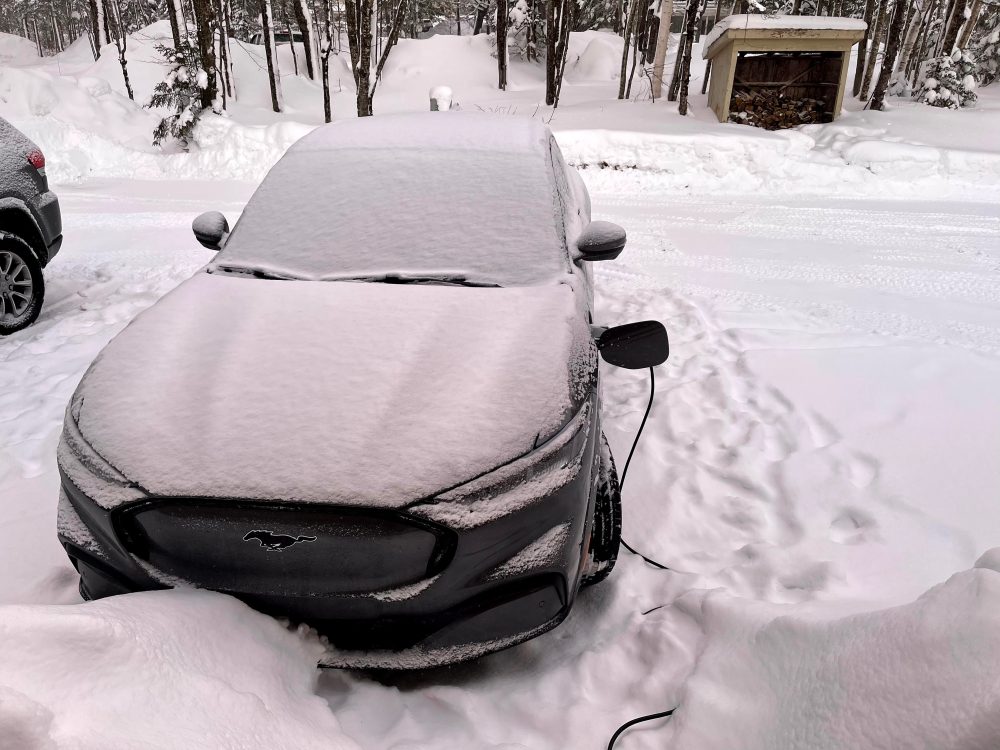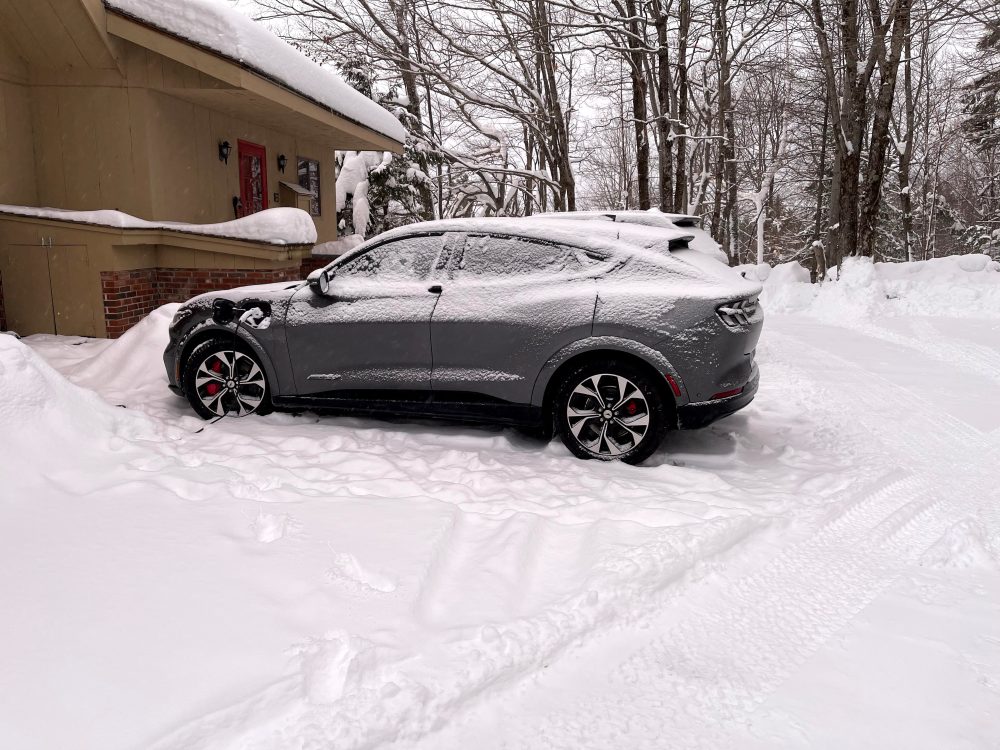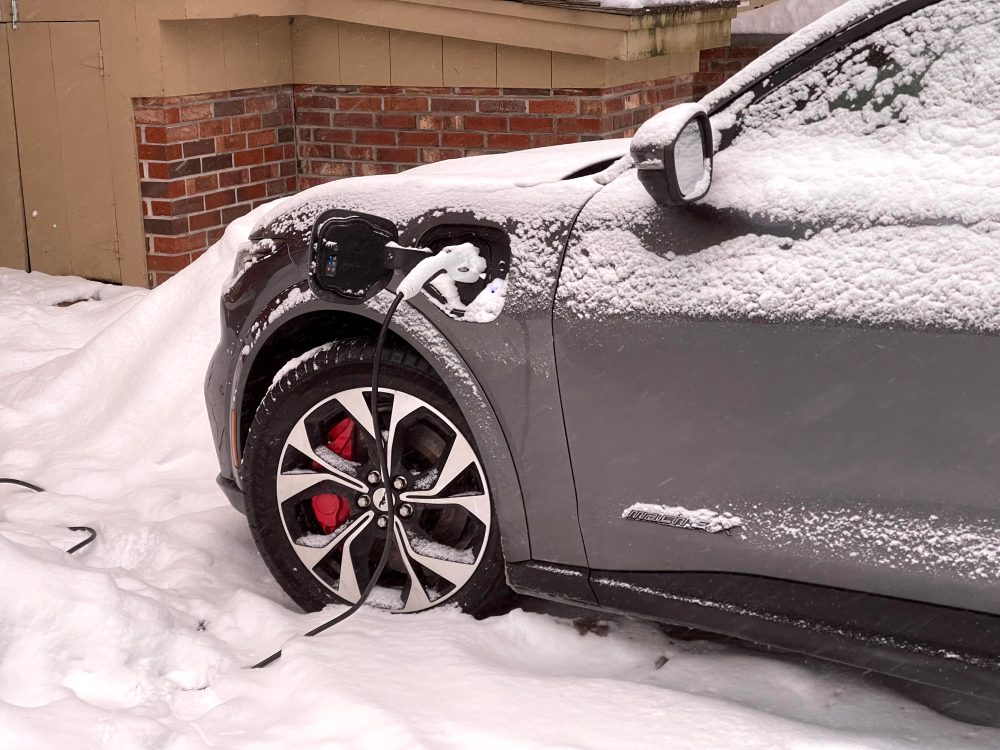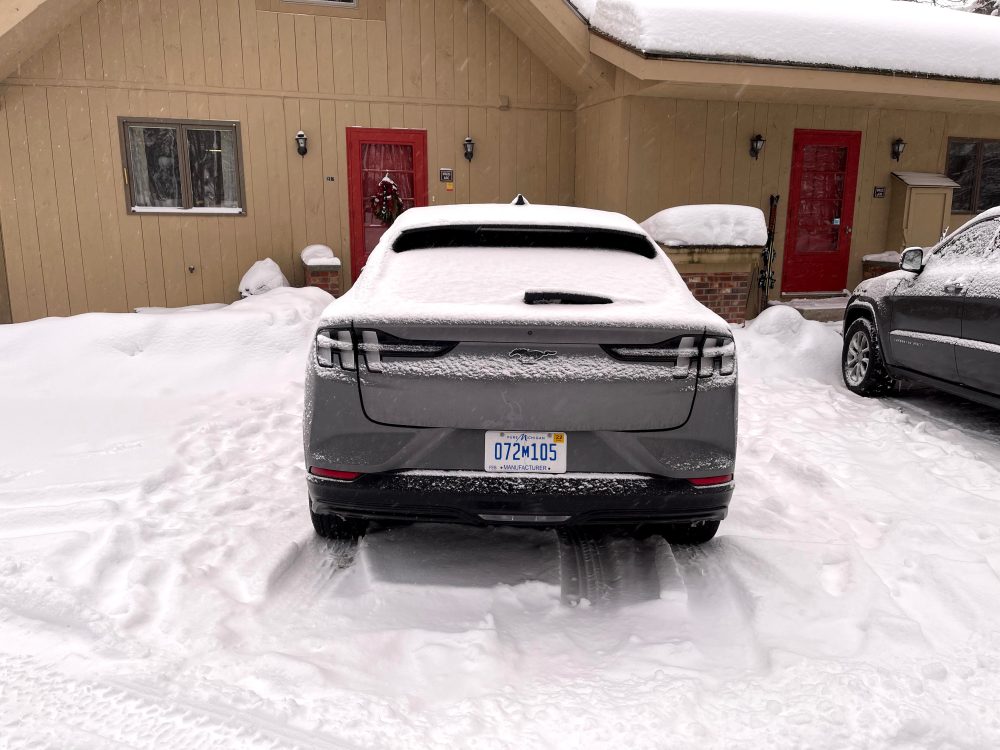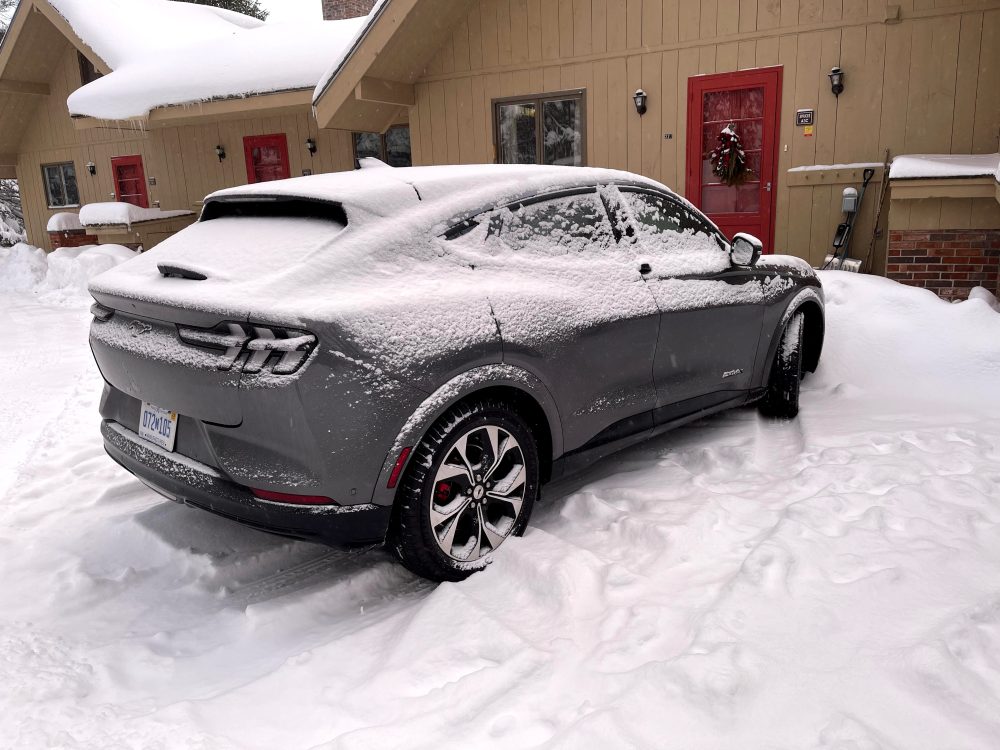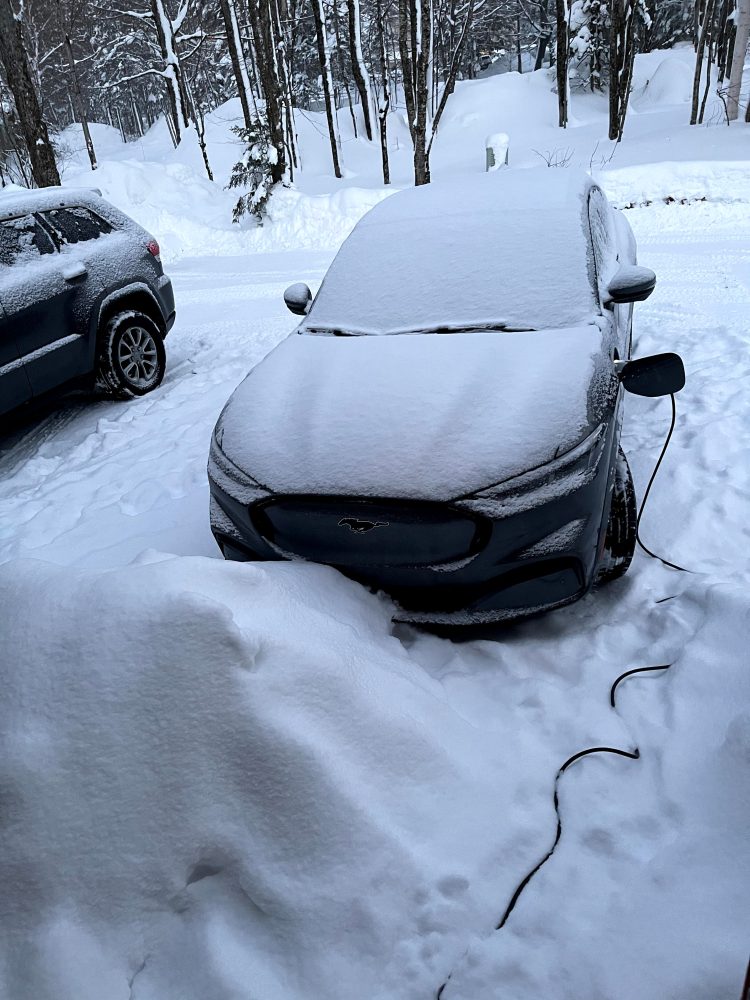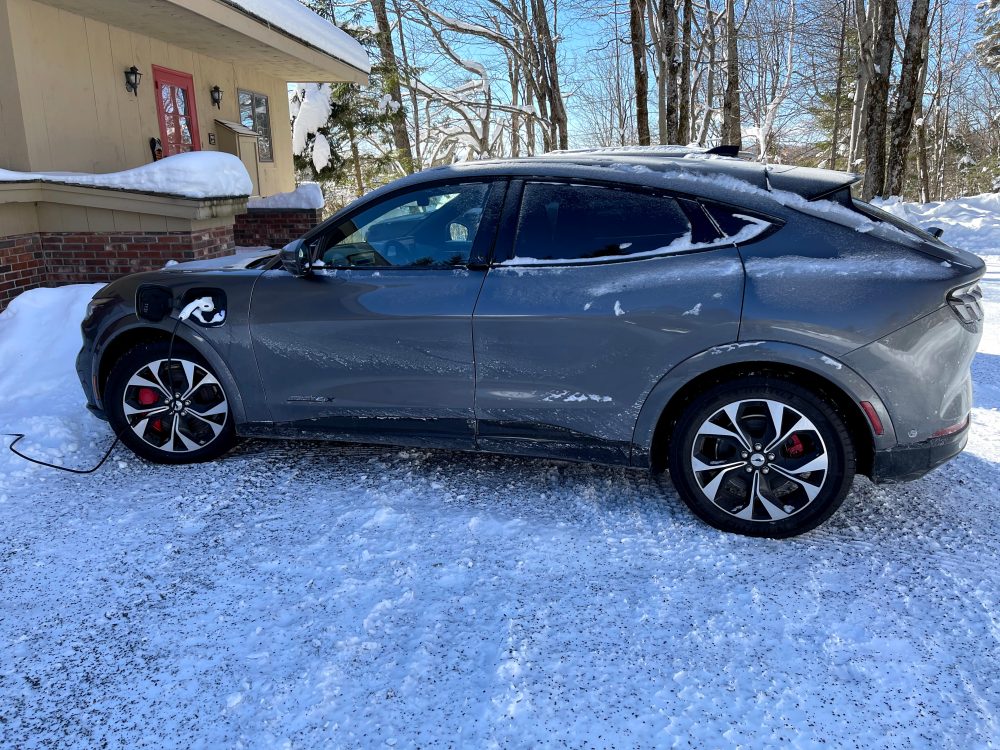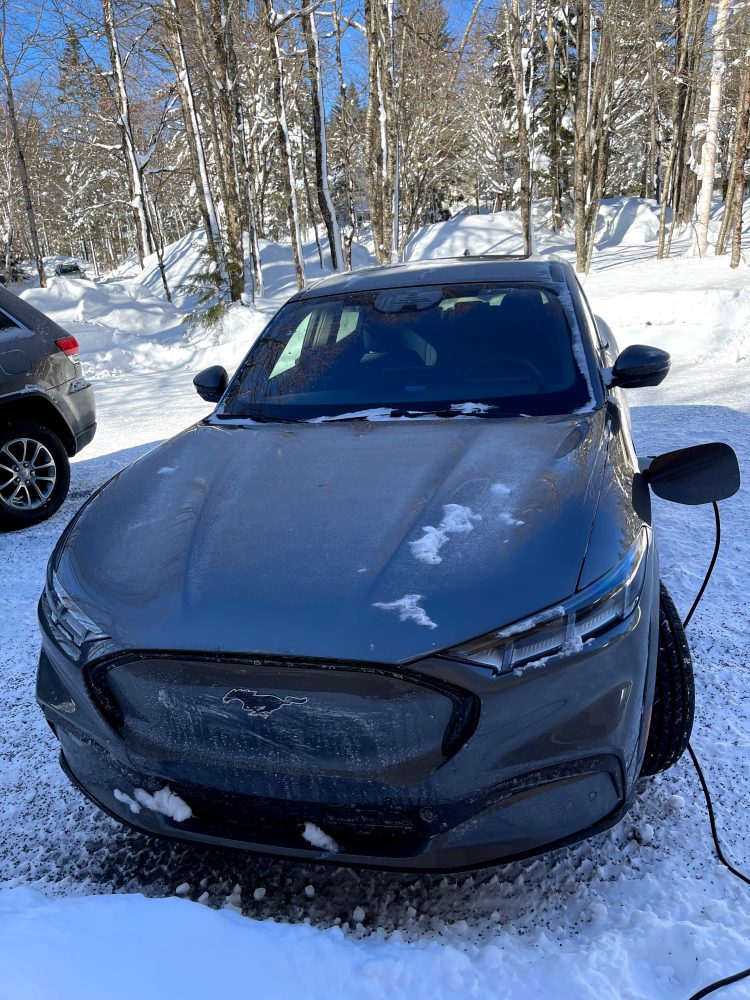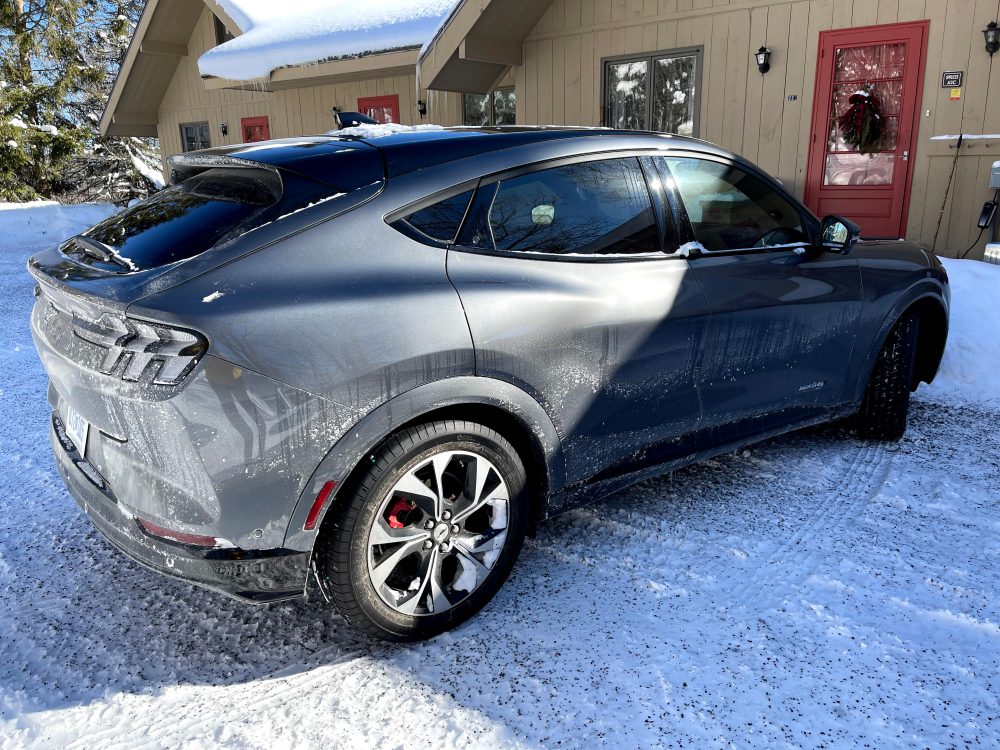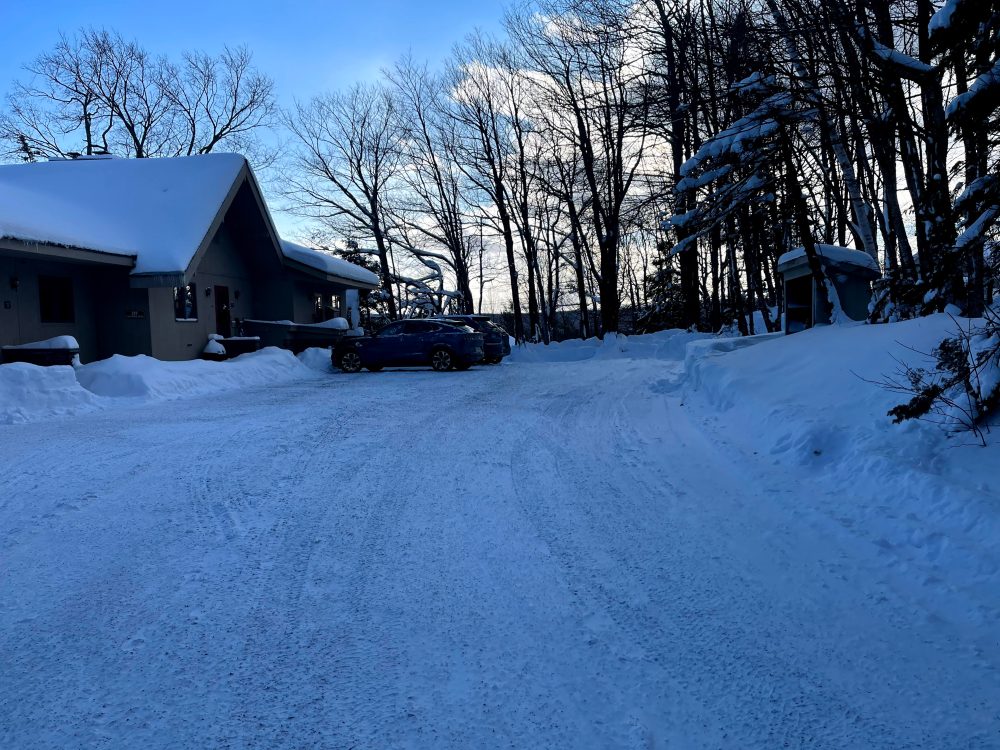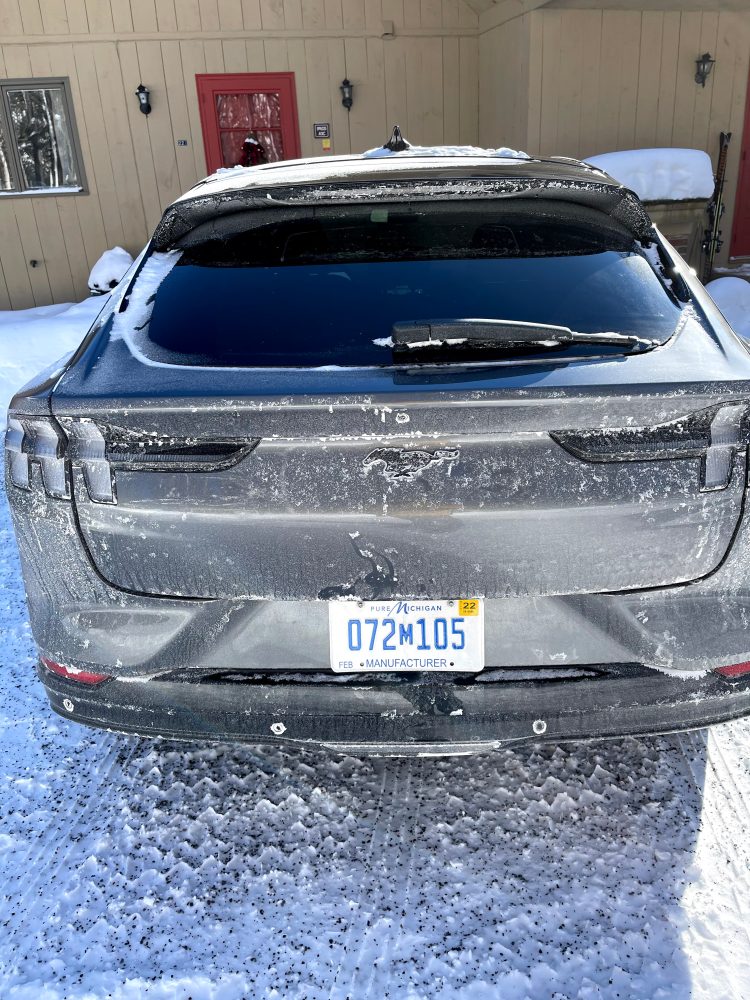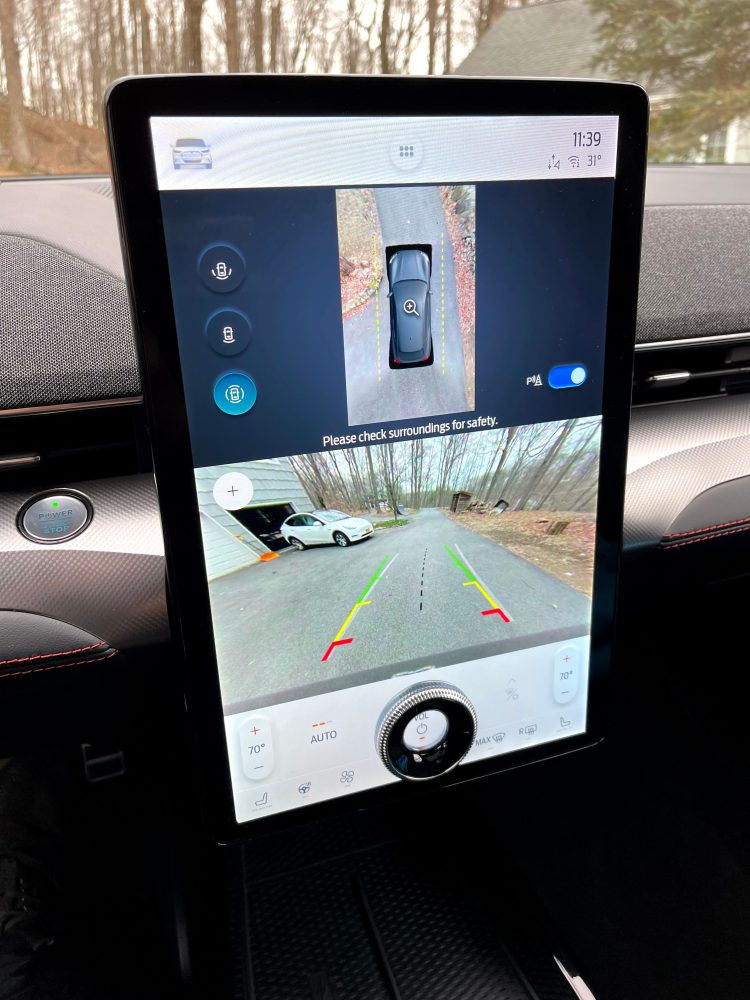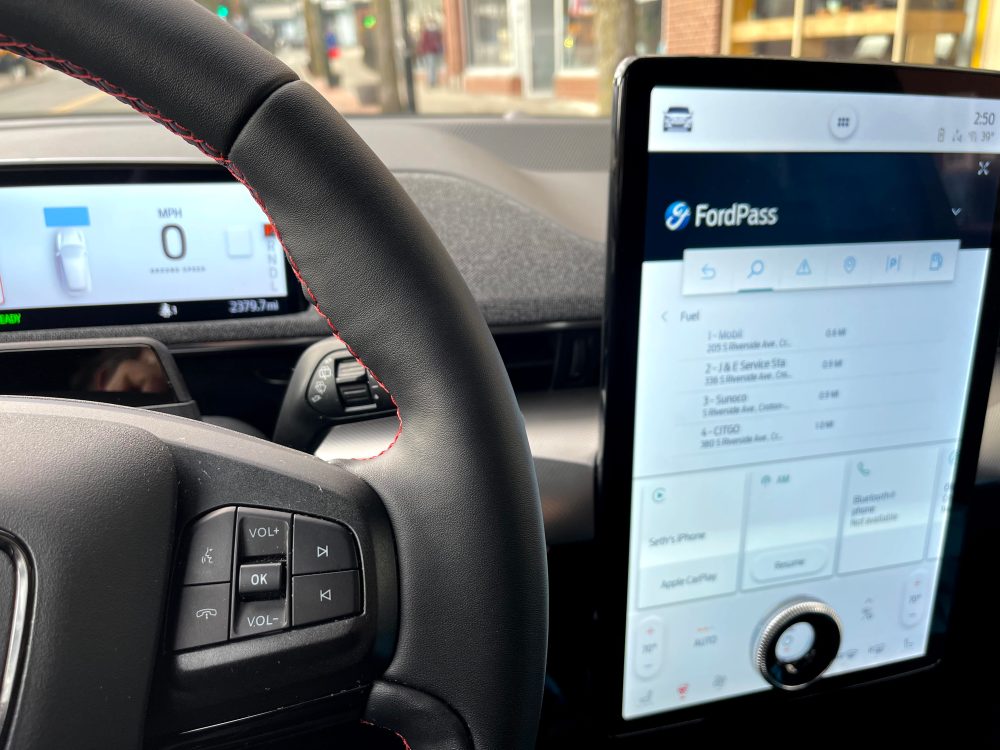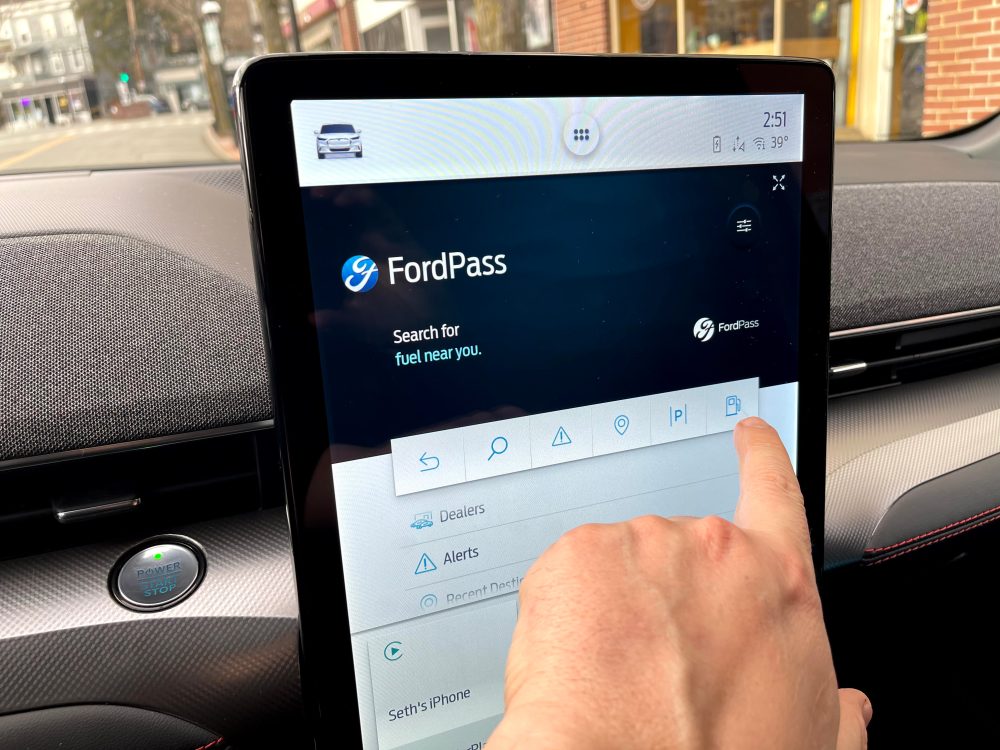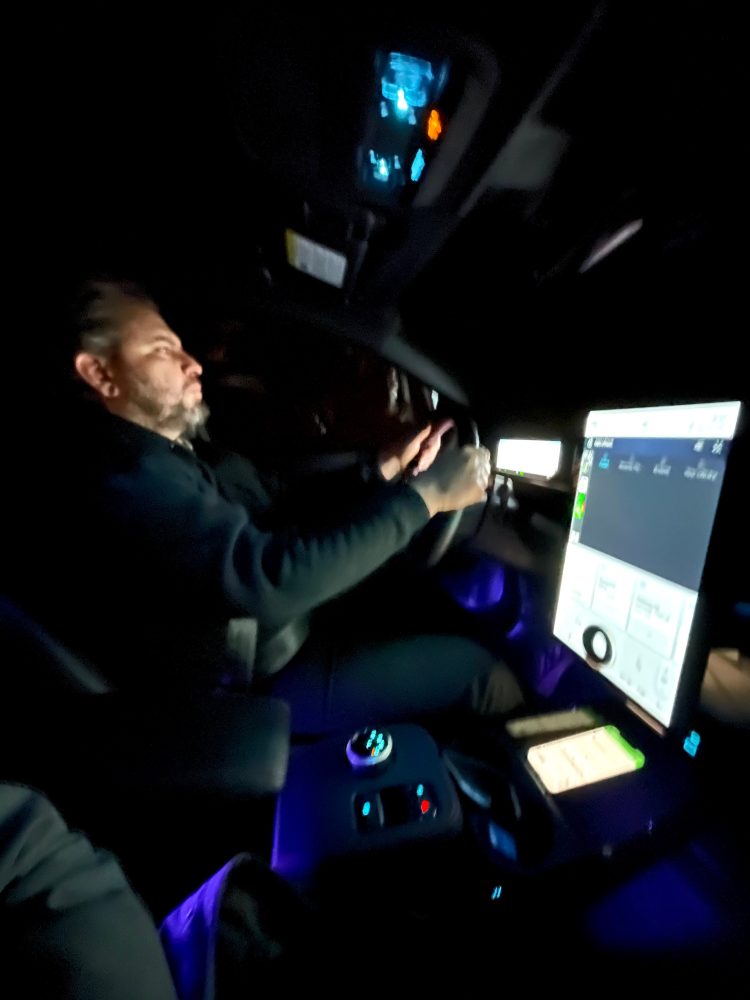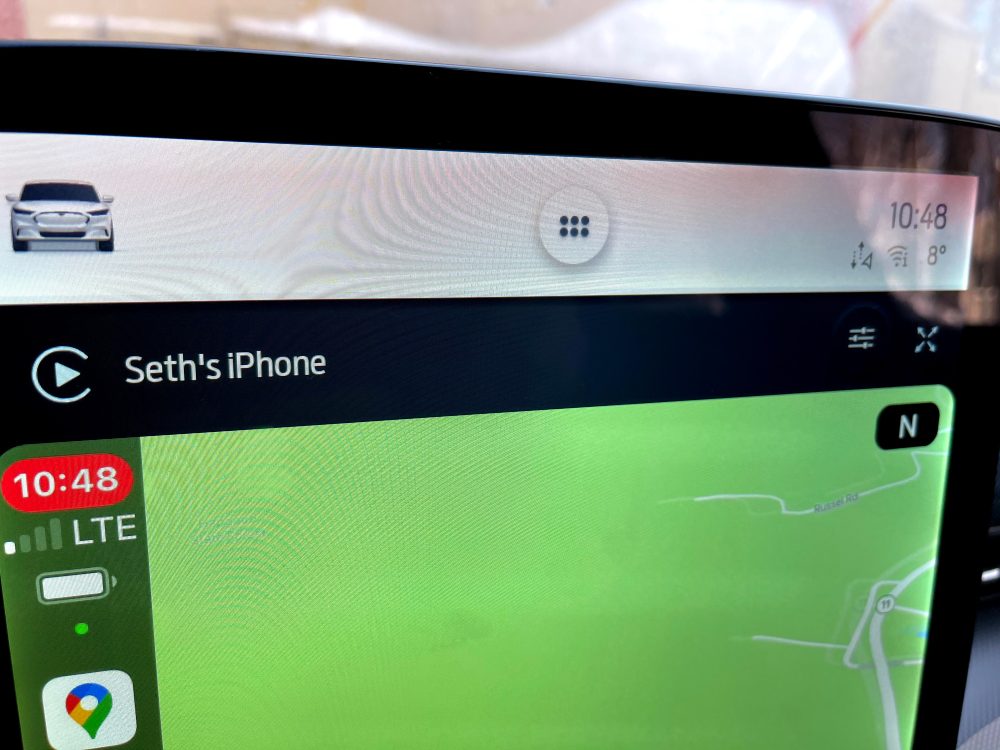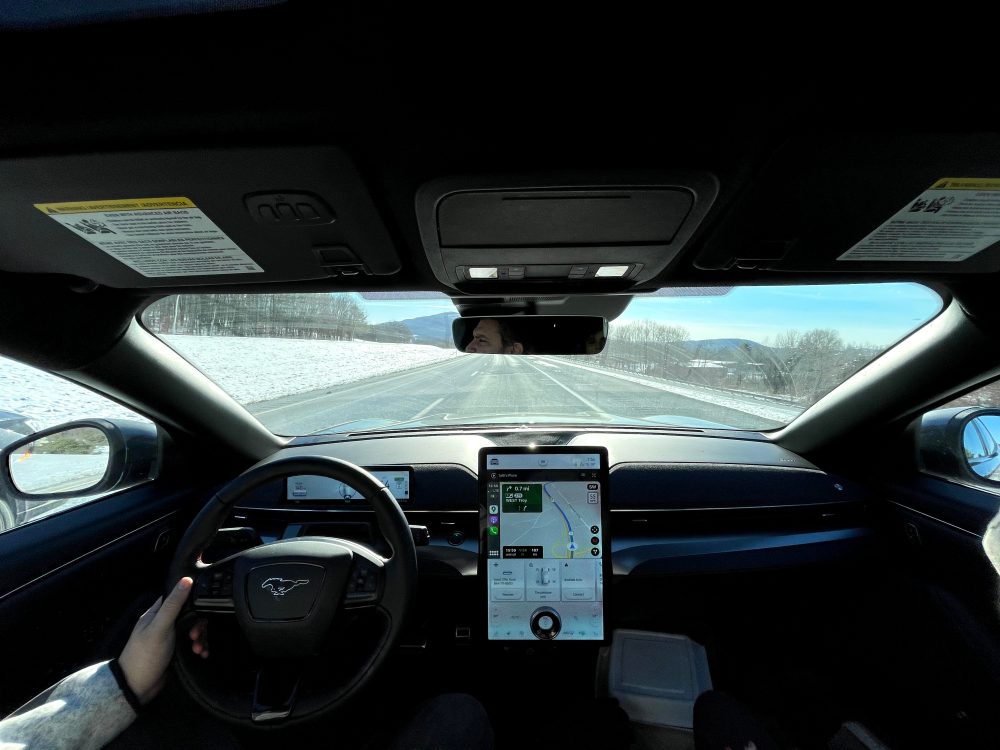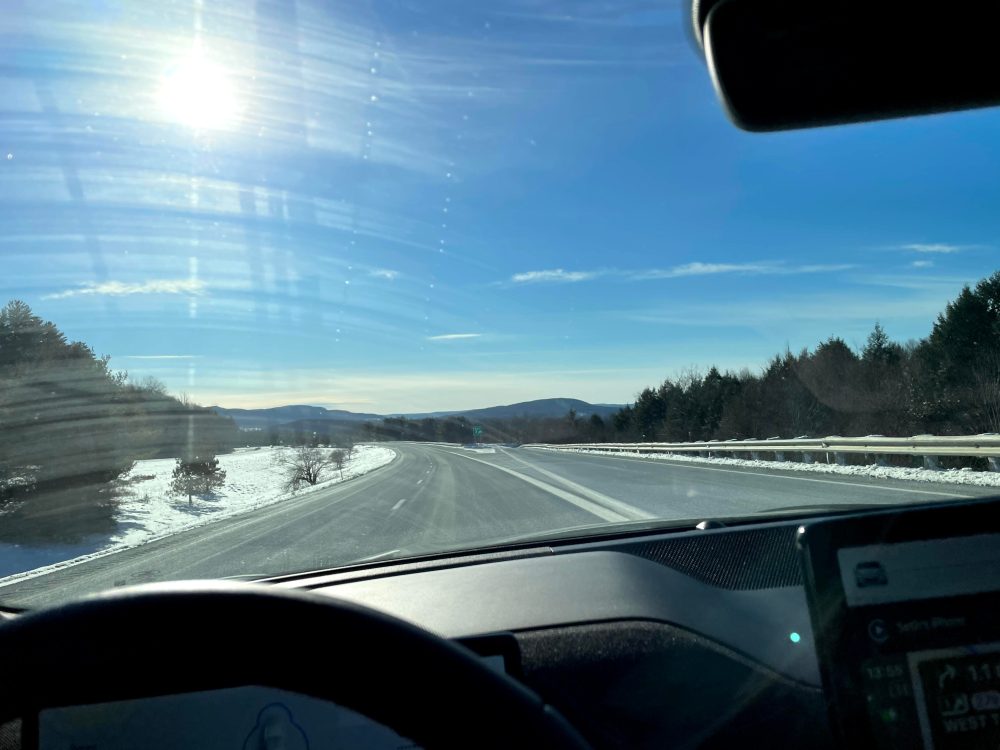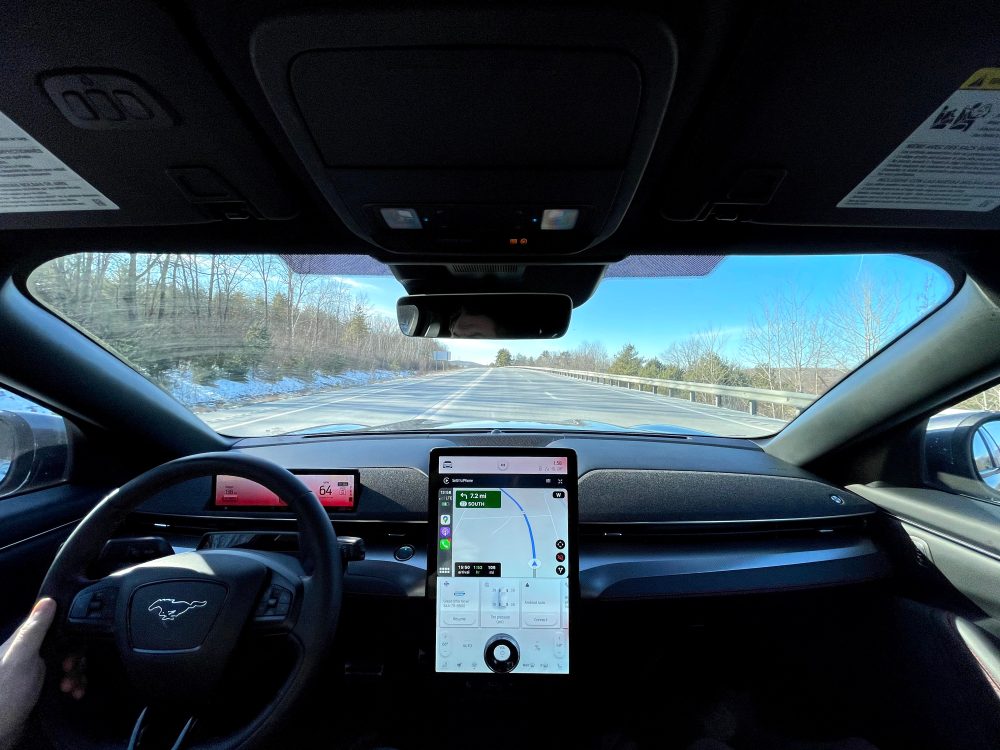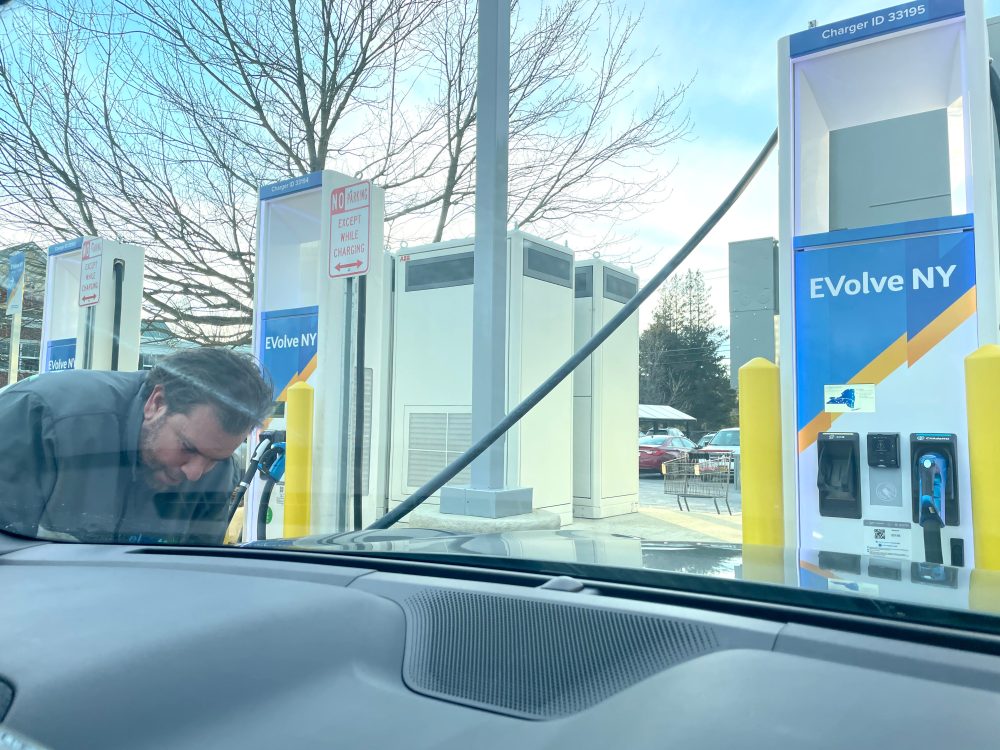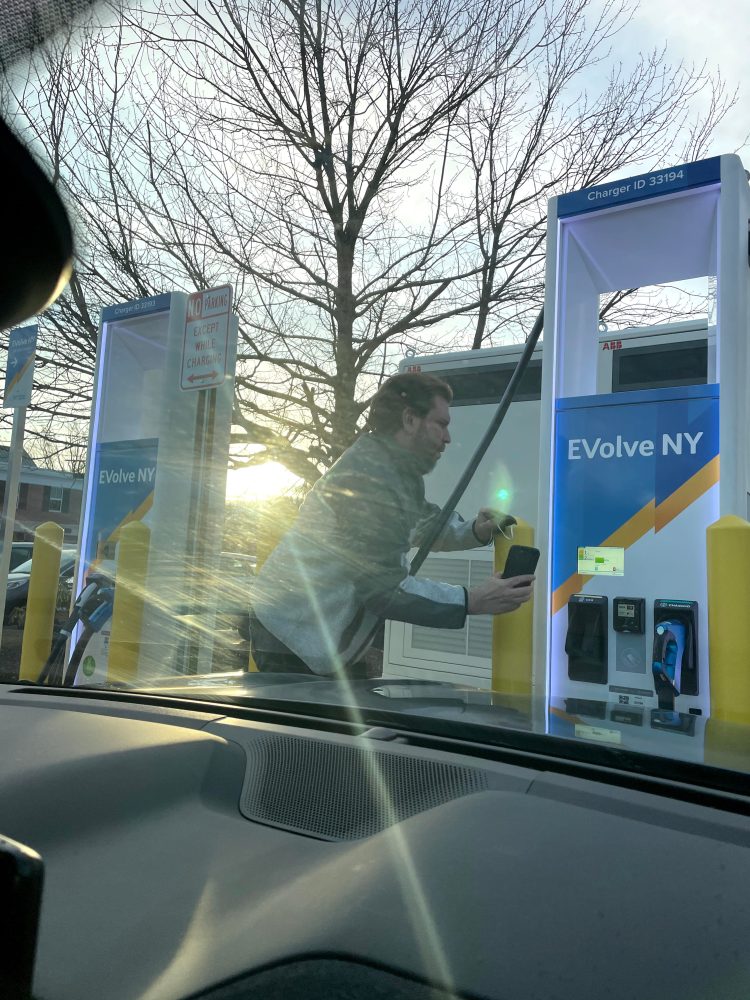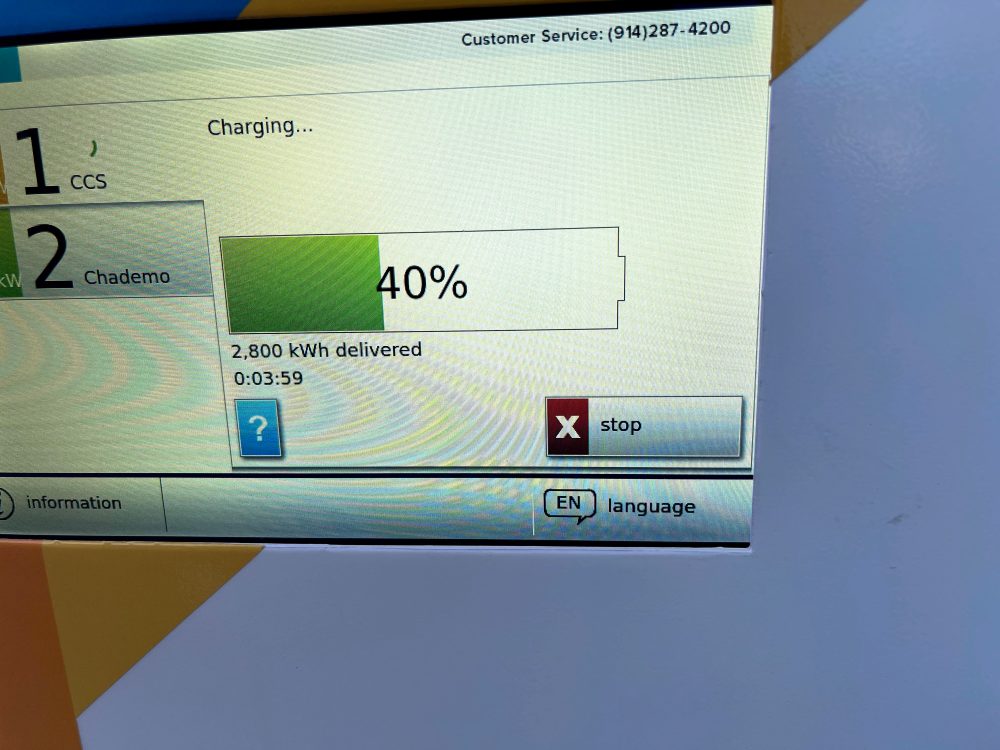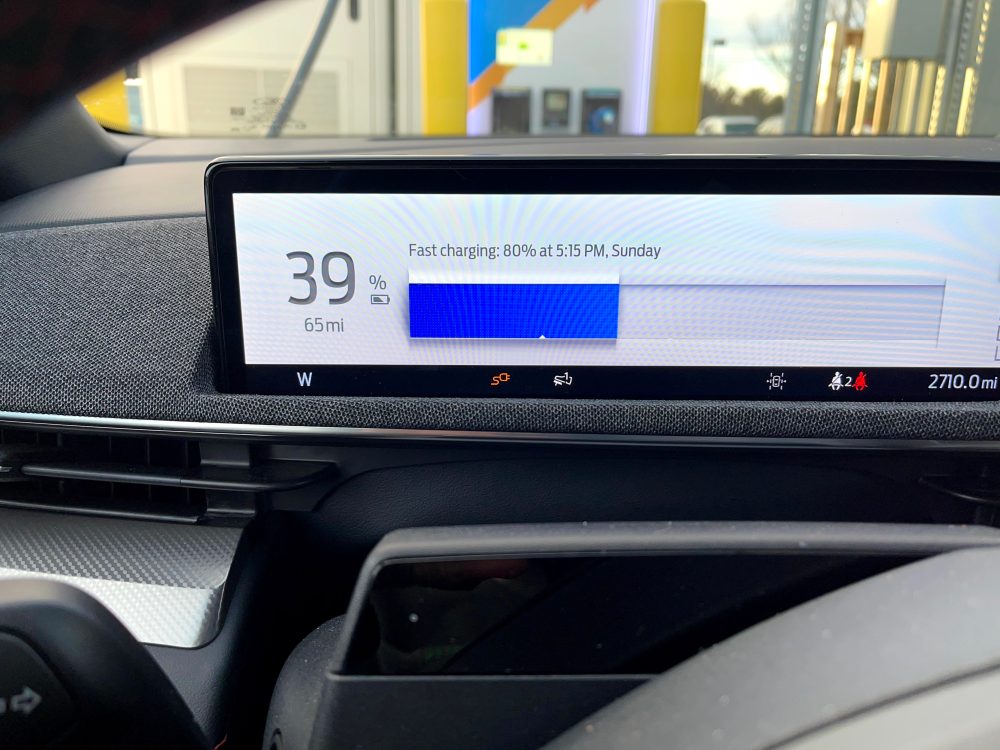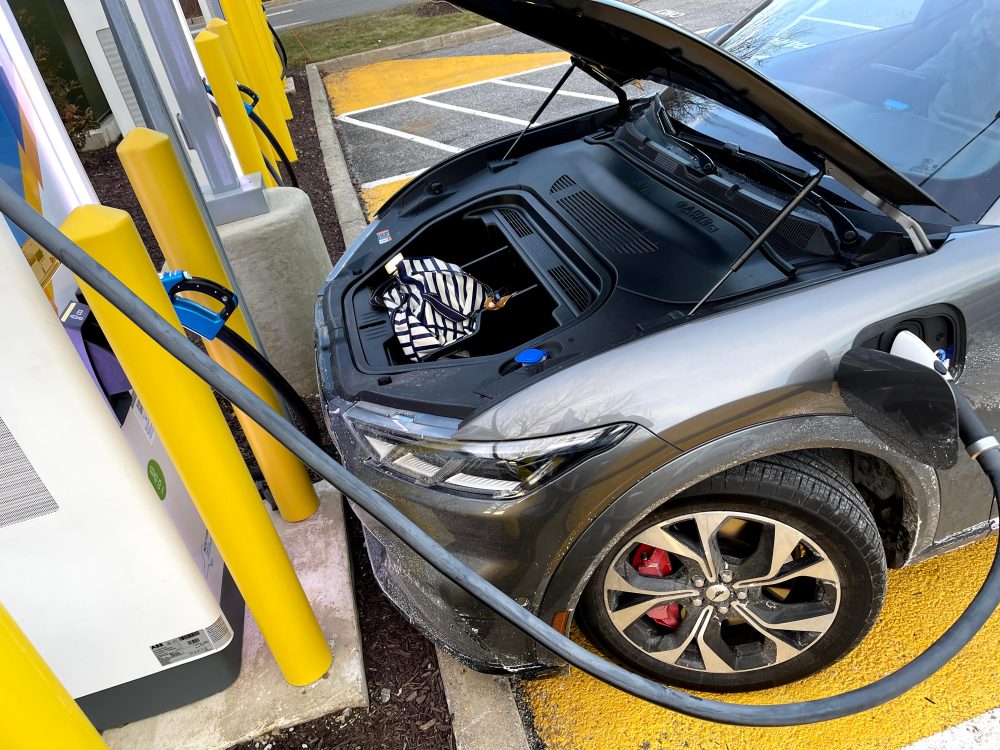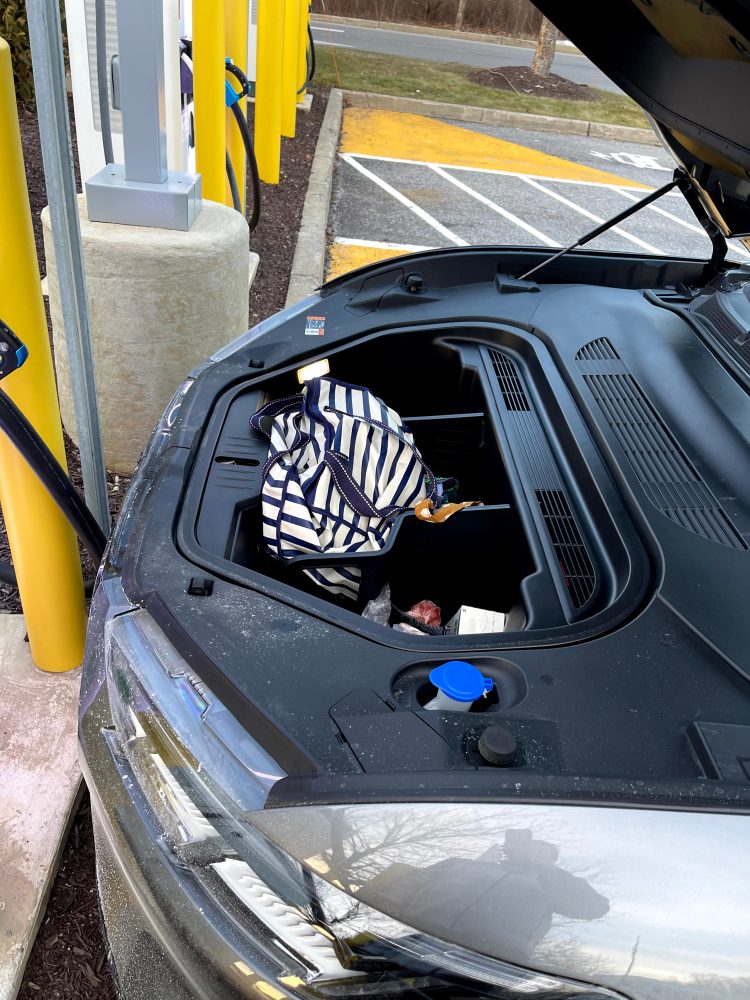
When we were invited to Ford’s campus in 2019 to check out what we’d learn was the new Mustang Mach-E, we were told we were witnessing the future of the iconic 118-year-old American auto manufacturer. We soon learned that Ford wasn’t just messing around with another compliance EV, it was building a sport CUV and throwing their most prized emblem on it.
Fast forward to 2021. I got a chance to drive the Mach-E for a full week, and this wasn’t a Southern California summer jaunt, when most EV drives are scheduled. It was Nor’easter-plagued late January in New York, including a snowy road trip to Vermont. I currently drive a Tesla Model Y as a daily driver and have been driving EVs exclusively for a decade, so this Mustang isn’t my first rodeo.
Two things before we start
- I’m not going to wade into the “Is the Mach-E a real Mustang?” debate. This is the only Mustang built since my birth that I’m super hyped about, so clearly I’m not a traditional Mustang fan. It looks enough like a Mustang and it’s fast af, so that’s the end of the debate as far as I’m concerned.
- Clearly Ford took a lot of Tesla’s ideas and ran with them. We’ve covered that debate for better or worse here. As a Tesla driver for over eight years and a current Model Y owner, I will share some comparisons throughout.
Dealership? No, thanks
I should note here that Ford provided the Mustang Mach-E First Edition, drove it to my house, and then picked it up a week later. Not only was this cordial, but it allowed me to totally skip the configuration, waiting, and most importantly, the dealership experience that most new Mach-E buyers will live through. My experience with Chevy and Toyota dealers in the area has been abysmal to the point where it has kept me from buying a vehicle from them. Tesla’s owned stores have been much better, but truthfully, I’d rather just order online.
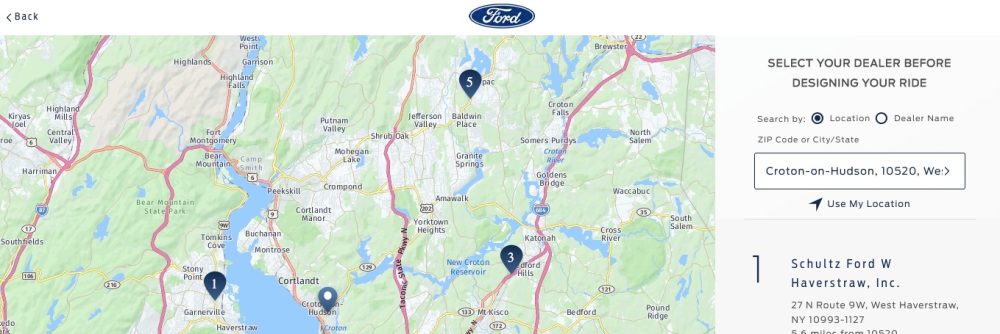
Ford is meeting us halfway here, allowing us to price the car online and plunk down $500 a la Tesla, but you still have to pick up your car and theoretically haggle your way out the door of a Ford dealership. We’ve heard reports of dealerships marking up Mach-E pricing as much as $15,000, which I’m sure Ford isn’t pleased about.
Currently on Ford.com, there is no sign of the Mach-E on the homepage, but if you go a click in, you’ll find the Mach-E and the configurator. The first option set is to choose a dealer. I did this all the way to the payment screen and it took about two minutes, was very clear and concise, and seemed easy enough. Most importantly, my local dealer gave me Ford’s MSRP pricing.
Paying online eliminates the worst part of the dealer experience and keeps the service part, which, depending who you ask, is either better or worse than Tesla’s service as it grows.
Mach-E interior/exterior
Electrek‘s Fred Lambert got the gorgeous Rapid Red Mach-E to test in Montreal, and I was told that a “Grabber Blue” one was available, if I was willing to wait a few weeks. Carbonized Gray it is, but at least this thing has sick red brake calipers! The color may seem a little boring, especially if you are looking for review pictures that really pop, but it’s hard to pass up a Mach-E for a week.
The interior was “Black Onyx ActiveX with 8-Way Power Driver and 4-Way Manual Passenger and Second Row 60/40 Split-Fold-Flat.” Overall, I’m a huge fan of the interior and in places where I think Tesla went too far with the minimalism, like windshield wipers as a screen setting, for instance, Ford kept it traditional on the stalk.
Bucket seats were comfortable in front, and I think the rear passenger room was particularly better than the Model Y in rear headroom and in floor-to-seat height. The height also translated to the back of the car where our large dog often rides on trips. She definitely had more headroom in the back even though Tesla claims more space there because of the longer cargo area.
Ford’s center display is also reminiscent of previous Tesla Model S or X with a huge volume dial actually glued onto the display. It works quite well, but I wonder how long the glue will keep it there. Truth be told, I mostly used the steering wheel controls for music and podcast manipulation just like I imagine most car owners do. The dial is nice for passengers, however, according to my wife.
While my kids loved the extra room and comfort of the seats in back, they were left wondering how to play video games on the center console. We’ll probably have to wait until Ford/Google Upshift integration is complete.
Ford’s SYNC 4 apps are all pretty standard fare, and I feel like they could provide a lot more real-time energy usage/regen etc. data to the driver. But just like in every non-Tesla car I’ve used in the last decade, I stuck almost exclusively to Android Auto/Apple CarPlay, which is phenomenal on the bigger screen. Even better, there is wireless CarPlay/Android Auto and convenient Qi chargers if you feel the need to take your phone out of your pocket – CarPlay/Android Auto work just fine in your pocket.
Probably the biggest standout here was build quality. My Model Y arrived and it turns out it was my job to do the quality assurance on it. Tesla’s inability to do panel gaps right as well as numerous imperfections inside and out really soured the otherwise amazing delivery service. Ford’s Mustang Mach-E, built and apparently requiring another round of QA, felt fantastic in comparison – or at least the press car did. Closing the doors here is an easy test. Tesla doors rattle when closed vs. a perfect shutting-door sound from Ford. High-speed driving, the Model Y interior is noisier.
3 things I didn’t love:
- The P-R-N-D gear shifter is a dial. Why oh why do EV makers insist on getting rid of traditional gear shifting? It’s what drivers know and love. By the end of the one-week drive I was used to switching gears with the dial, so it isn’t by any means a deal breaker, but more of a head scratcher, and especially if Ford wants to draw lines back to past Mustangs.
- The button door latches. Why? I get that the clean door panel look is nice without a handle on the side of the car, but if you are going to have that black handle on the top of the panel, just make that the door opening mechanism instead of the button. Also, it’s super fun trying to find the button in the snow.
- The Frunk: a lot of love/hate here. I’m super glad Ford did this and it is huge and even has a drain for emptying water that Tesla should, in turn, copy. But you can only open it from inside with a double pull of the hood lever located near your left foot (not from the fob or even from the app). Not exactly convenient for groceries. Adding insult to injury, Ford outfits the Frunk with a big spacer assembly that requires tools to remove. Did any of these engineers ever go to the grocery store? That said, if I owned this car, I would remove the spacers on day one and probably never put it back in. Ford note, Customers will be able to open the front trunk remotely shortly after launch with an over-the-air (OTA) update, when customers also will be able to remove the cargo management system.
Ford’s CoPilot 360 was not ready…
…but traffic-aware cruise and lane keep worked almost as well. As you can see in the video, driving on highways and parkways with lane assist and traffic aware cruise were both excellent experiences and I would say 95% as good as the current state of AutoPilot on Tesla. The differences is in the display tech (little feedback from Ford) and stop and go where the Mustang asks the driver to intervene. Ford is erring on the side of caution here vs. Tesla.
And just as Tesla promises a big Full Self Driving (FSD) update, Ford’s CoPilot 360 will be coming at a point sometime in the future. When it’s ready, it will work much like GM’s SuperCruise where you can take your hands off the wheel as long as you stay attentive on certain pre-defined routes.
The Mustang Mach-E is faaast
If the debate over “Is this a Mustang?” came down to speed, this might be too fast to call a Mustang. Maybe the Ford GT is a better comparison?
Here’s where I don’t think people fully grasp the electric vs. ICE difference in speed. Sure, there are ICE cars that do 5 second or less 0-60 times. But to get that fast, you are downshifting, red-lining, and hitting gears jerky and hard in most fast gas-powered cars. It feels and sounds like you are doing real damage to the struggling engine that was not designed to do this often.
Compare that to an EV that just sucks you forward like a rail gun. You can do your best 0-60 at every freeway entrance forever in an EV and no one bats an eye. But if you do that with an ICE car, people are going to call the cops on you.
My point here is that even if an EV has a comparable 0-60 time as a gas car, you are almost always going to go faster in an EV, and the experience is going to be way better.
Ford offers three speed modes: Whisper, Engage, and Unbridled. I suppose if you want to keep your electricity usage down, Whisper or Engage would help there by making it hard to gun it, but most people are going to put it in Unbridled and leave it there for the duration of owning the car. It’s a super-fun way to drive that allows some slippage of the wheels on start and responsive acceleration and steering that you’ll never want to turn off. Ford notes that there is no difference over the long haul in energy efficiency between the different modes.
You can see in the video above that I got about 6 seconds 0-60 on snowy roads going uphill. The AWD speed and acceleration are very comparable to my Model Y overall. I imagine the 3.5 sec 0-60 mph GT Mustang will be comparable to the Model Y Performance if you need that extra bit of speed.
Mach-E range and charging
The Ford Mustang Mach-E “First Edition” is EPA rated at 270 miles on a 88 kWh (usable, 98 kWh total) battery. When I set out for our 180-Mile Vermont snowboarding trip, the range given by the Mach-E was about 204 miles based on previous driving and the outside temperature. If our Tesla Model Y had said that, we wouldn’t have made it. However, the Mach-E was actually under-guessing its range vs. our Model Y, which overestimates it. Luckily, there are EVGO 50kW chargers along the route if there were issues.
It turns out we actually gained some mileage expectations along the way, and made it to the ski condo with about 40 miles of range left. So if you include the mountain climb at the end, that’s pretty fantastic. Also, if you include Tesla’s optimistic range vs. the Mustang’s pessimistic range, we landed with about the same range or percentage of battery as our Model Y. The Mustang’s battery is much bigger with 88kWh usable vs. Tesla’s 75kWh, but its EPA range is lower. Conclusion here: Those are a real 270 miles of range, and even in snow and up a mountain, the Mustang was on track to get very close to that stated range. It wouldn’t surprise me to see Ford OTA update the battery to shrink the buffer and get closer to 300 miles of range in this car like Jaguar and Audi have done with their LG packs.
Charging is one area Tesla is way out in front of the rest of the pack, there isn’t really even a debate. However, as far as CCS charging cars go, only the Mustang and the Porsche Taycan now include the “Plug and Charge” standard that allows you to just drive up to a charging station (currently only Electrify America) and plug in to start charging. That means no credit cards, no RFID, no apps required. I tried this out with over 80% state of charge and the EA station started charging. It did take about 30 seconds from plugging in to charge initiated, but I think this speed will improve over time.
On the way back from Vermont, we decided to stop at one of New York’s new EvolveNY charging stations that is supposed to have Plug and Charge. It didn’t. Even worse, credit cards and Apple Pay RFID weren’t working. After a few minutes we were able to initiate a 46 kW charge via the app. As you can imagine, everyone points fingers in this kind of situation (and it was about 6F), but others have gotten the Mach-E up near its stated 150 kW charging peak at Electrify America stations.
Charging at home is very straightforward and you’ll easily get by with Ford’s included Level 1/2 adapter that includes the Nema-14-50 adapter free of charge (ahem, Tesla). With the included 32A adapter, you’ll get about 30 miles per hour of charge and easily fill up every night no matter what your beginning state of charge is. Of course, Ford offers access to just about every charging network out there and calls it the “Ford Network.” Obviously for trips, you’ll want to use the level 3 DC fast chargers from Electrify America, EVGO, and others. While Tesla is still a better overall experience, on our trip to Vermont, there were 3 CCS charging locations vs. 1 Tesla charger.
Electrek’s Take
As a Tesla Model Y owner who wanted to validate my purchase decision, I wanted the Mach-E to be significantly less of a car overall. It wasn’t.
On the contrary.
In many meaningful ways, the Ford Mustang Mach-E is a better vehicle than a Model Y, and more importantly for Ford and the EV industry, it is an exceptional vehicle overall. I imagine a lot of people who aren’t ready for the leap to Tesla will find the Mach-E every bit as exciting and more of an easy step from the ICE car they are coming from. Especially Ford owners.
The Mach-E isn’t perfect and I imagine in the coming years, Ford’s designers will reconsider some of the quibbles mentioned above. But as a package, Ford has to be congratulated on their first and very important effort.
The Mach-E has tons of room for 5 + dog, looks amazing, and pays homage to Ford’s Mustang, drives like a bat out of hell, and can be had for a starting price of about $35,000 after federal tax savings. It costs less in states with their own and utility incentives.
Maybe the Mach-E is too good to be called a Mustang?
Want to discuss the Mach-E? We’ll be discussing it on today’s podcast. You can ask questions in Youtube here.
Subscribe to Electrek on YouTube for exclusive videos and subscribe to the podcast.
Author: Seth Weintraub
Source: Electrek



